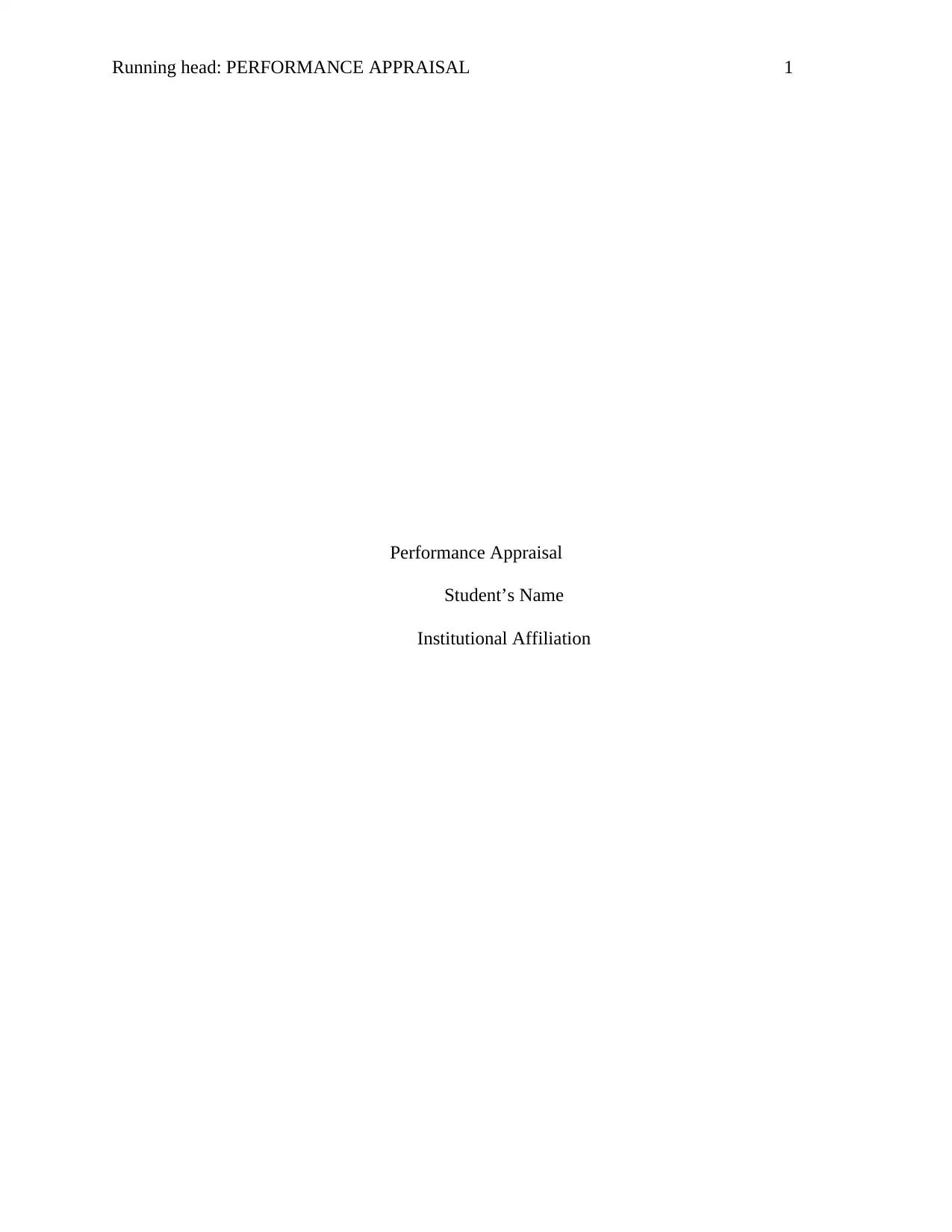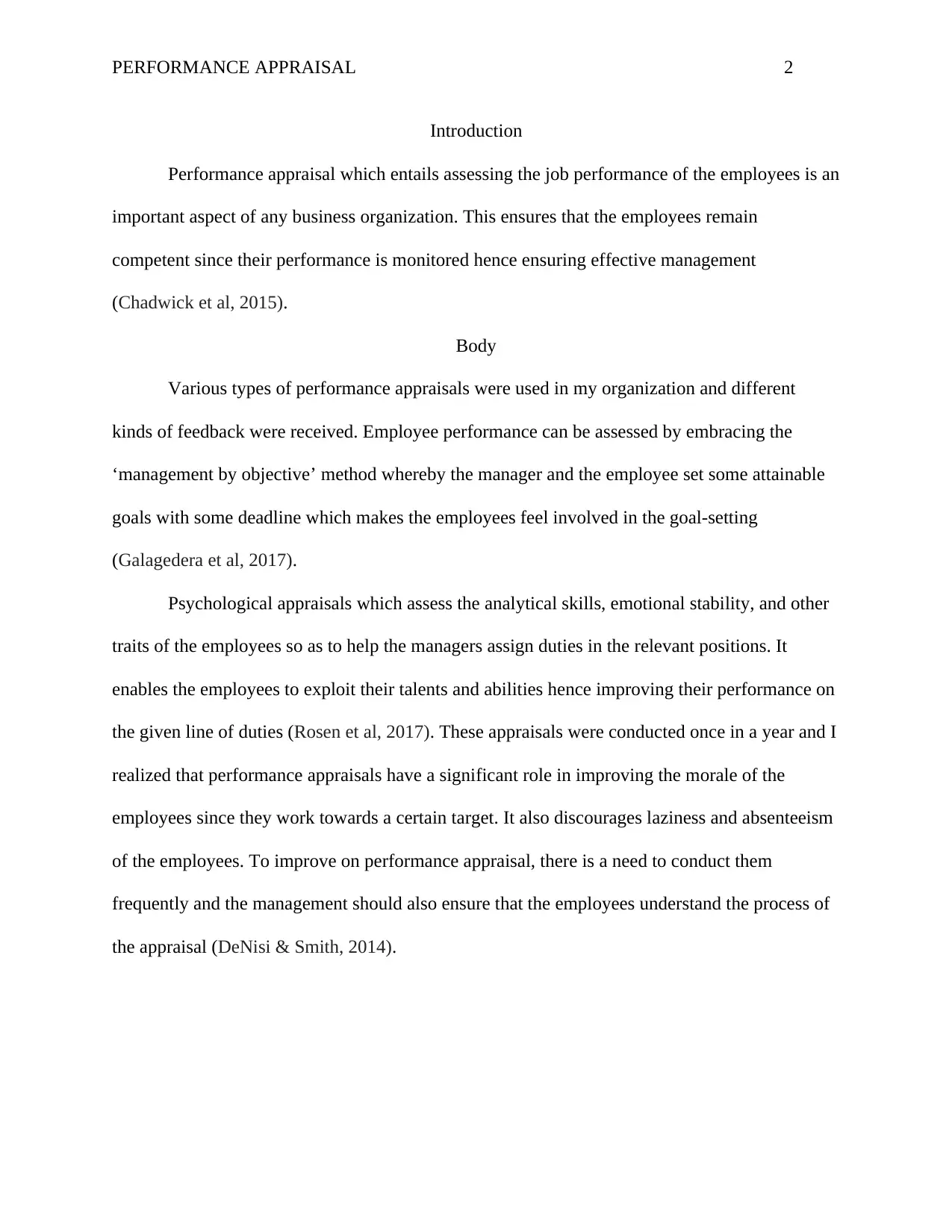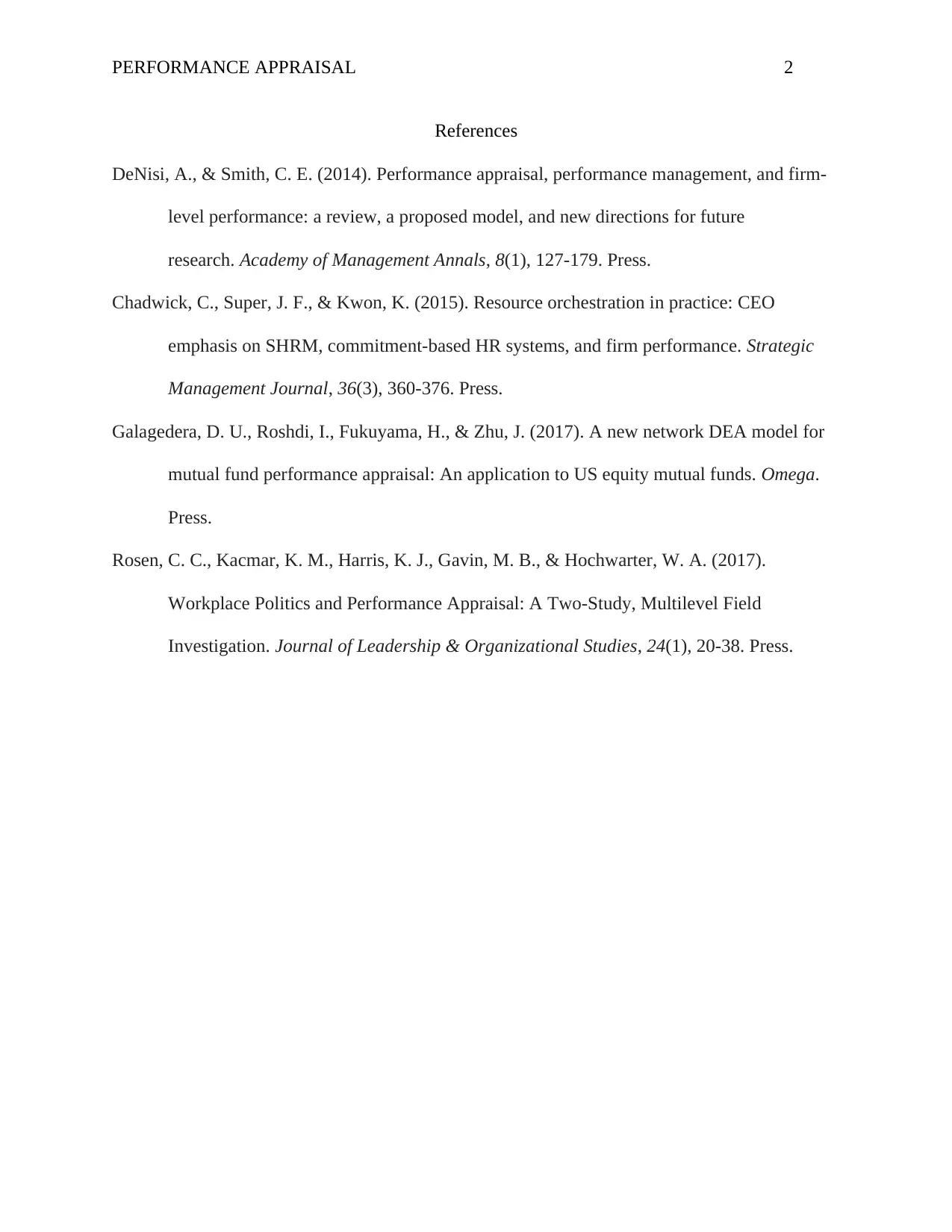Performance Appraisal Report: Insights and Recommendations
VerifiedAdded on 2020/04/07
|4
|517
|146
Report
AI Summary
This report delves into the realm of performance appraisals, a critical component of effective management within any organization. It examines various appraisal methods, including management by objectives and psychological appraisals, highlighting their impact on employee performance and morale. The report also explores the practical application of these methods within a specific organizational context, emphasizing the importance of regular appraisals and employee understanding of the process. The author underscores the significance of performance appraisals in enhancing overall organizational success, offering recommendations for improvements and insights into how to optimize the appraisal process. The report concludes by emphasizing the importance of performance appraisals for employee development and organizational effectiveness.
1 out of 4











![[object Object]](/_next/static/media/star-bottom.7253800d.svg)